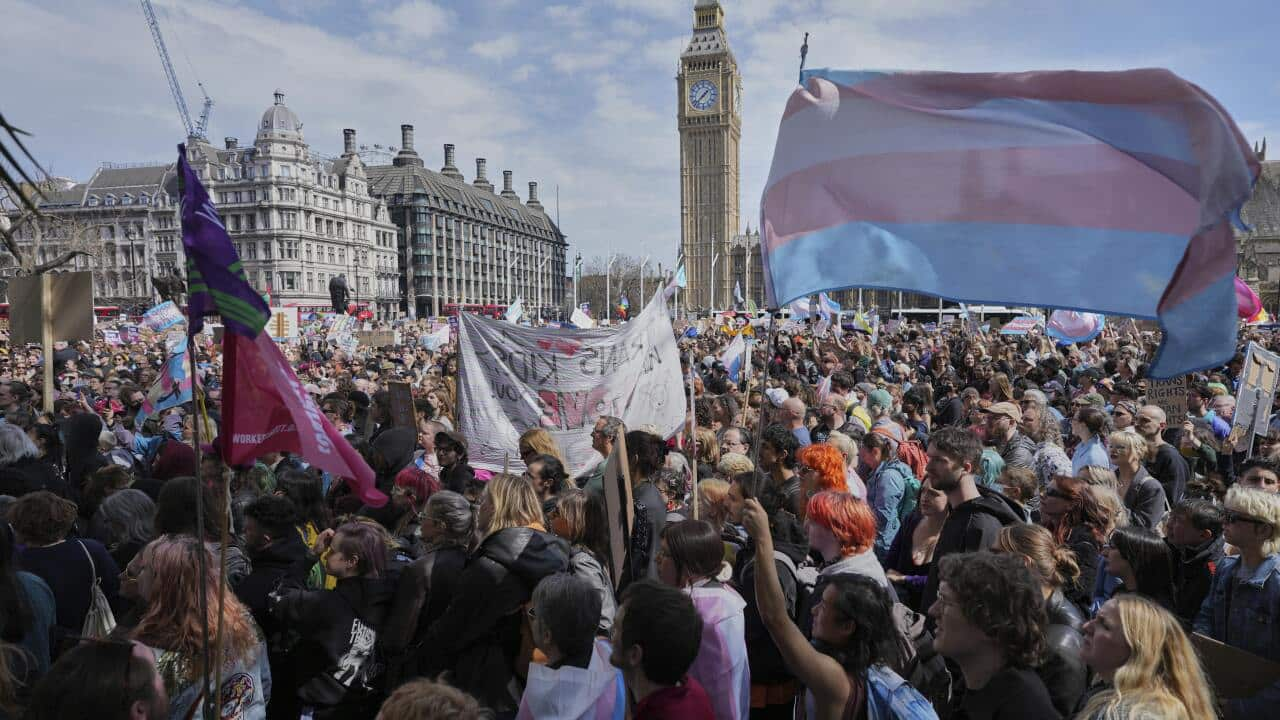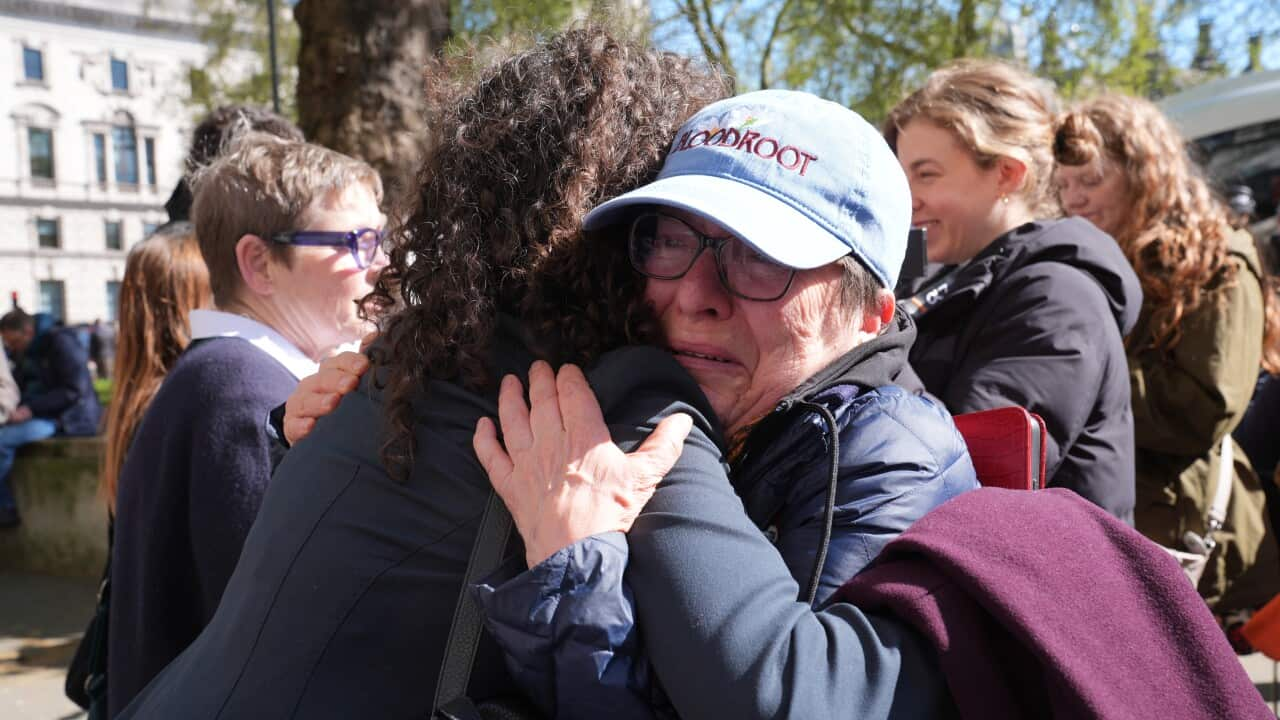Key Points
- Demonstrators in London and Edinburgh have gathered to protest a recent UK Supreme Court ruling.
- The court found that the terms "woman" and "sex" in the 2010 Equality Act refer to a "biological woman".
- Trans activists are concerned that the ruling's far-reaching consequences could increase potential discrimination.
Thousands of people have rallied in London and Edinburgh in support of trans rights, after a landmark UK court ruling on the definition of a "woman".
On Wednesday, Britain's Supreme Court , with potentially far-reaching consequences for how single-sex spaces and services are run.
"The unanimous decision of this court is that the terms 'women' and 'sex' in the Equality Act 2010 refer to a biological woman and biological sex," said deputy president of the Supreme Court Patrick Hodge.
"But we counsel against reading this judgment as a triumph for one or more groups in our society at the expense of another — it is not."
The decision confirms single-sex services for women, such as refuges, hospital wards, and sports, can exclude trans women, clearing up legal ambiguity. Transgender campaigners have expressed concern that the decision could lead to discrimination, especially over employment issues.
Outside the UK parliament in London, activists, protesters, trade unions and community groups waved flags and held up banners with slogans such as "trans women are women" and "trans rights are human rights".
Fears of an increase in 'hate crimes'
"My main fear [is] the extremists will feel empowered by this decision," said Eevee Zayas, a 32-year-old researcher from Spain, describing themself as non-binary transgender.
"Hate crimes against [the] trans community [will] go up," Zayas added.
The court ruling said single-sex spaces and services including changing rooms, toilets and women-only hospital wards "will function properly only if sex is interpreted as biological sex".
Joe Brown, a trans woman in the process of transitioning, said: "Everything in the transition is going to be harder.
"Coming here in big numbers is very important to stand against the Supreme Court decision."
Brown said other fears included not being able to access healthcare and children being scared to come out as trans.

Trans activists are concerned the UK Supreme Court's ruling could lead to an increase in discrimination. Source: AAP / Andrew Matthews / PA
At least two statues in Parliament Square were daubed with graffiti during the rally, including one of suffragette Millicent Fawcett, who was part of the campaign to secure the vote for women in the early part of the 20th century.
In the Scottish capital Edinburgh, thousands more protesters marched. Lauren Yeoman, 38, said she was "disgusted" by a ruling she felt effectively removed the human rights of trans people.
"We're pointing fingers at people who aren't harming anybody, such as trans people, while ignoring the real problems," she said.

People from trans rights groups and community organisations rallied outside Queen Elizabeth House, the UK Government building in Edinburgh. Source: AAP / Lesley Martin / PA
While the Scottish government argued that the law gave trans women with a Gender Recognition Certificate the same protections as a cisgender female, the campaign group disagreed.
FWS lost its case in the Scottish courts, but the UK Supreme Court ruled in its favour. FWS co-director Susan Smith told supporters outside the court that judges had said that "women are protected by their biological sex".
Harry Potter author JK Rowling, who has been vocally critical of trans rights, was among those who welcomed the decision.
Visit the to access articles, podcasts and videos from SBS News, NITV and our teams covering more than 60 languages.



